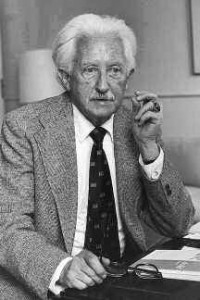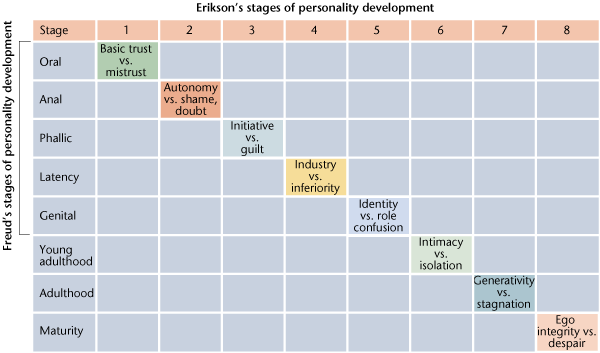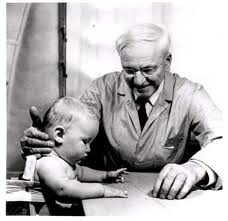4.1 Approaches used in PERMATA
According to official portal of KEMAS, the approaches used by PERMATA are:
1. Play Based Learning
- making the learning process more pleasurable
- improve the cognitive ability
- making children more desire to explore to fulfill their inquiry skill, gross and fine motor skills, innovative, creative and critical thinking skill
- Overcome the stress and worries
2. Theme Learning
-Learning process is carried by a topic/theme that had been chosen according to time, place, interest and background of students
3. Integrated
- Help children to understand the fact of real life are interconnected to each other.
4.Information Technology and Communication
- help in learning process by providing information,self- or peer- interaction towards the material, enrich the learning experience.
Management of teaching and learning activities are planned & organized in classes, groups and individuals.
4.2 What is complex Oedipus & complex Electra
According to Oxford Dictionary, Oedipus complex is a psychoanalysis term (used in Freudian theory). It is the complex
of emotions aroused in a MALE young child, typically around the age of
four, by an unconscious sexual desire for the parent of the opposite sex
and wish to exclude the parent of the same sex. (The term was
originally applied to boys, the equivalent in girls being called the Electra complex.).
4.3 Development Theories
ARNOLD GESELL (1880-1961): 10 Major Growth
- Motor characteristics. These include bodily activity, eyes, and hands.
- Personal hygiene. These include eating, sleeping, elimination, bathing and dressing, health and somatic complaints, and tensional outlets.
- Emotional expression. These include affective attitudes, crying, assertion, and anger.
- Fears and dreams.
- Self and sex.
- Interpersonal relations. These include mother-child, child-child, and groupings in play.
- Play and pastimes. These include general interests, reading, music, radio, and cinema.
- School life. These include adjustment to school, classroom demeanor, reading, writing, and arithmetic.
- Ethical sense. These include blaming and alibiing; response to direction, punishment, praise; response to reason; sense of good and bad; and truth and property.
- Philosophic outlook. These include time, space, language and thought, war, death, and deity.

ERIC ERIKSON : 8 stages of psychosocial developement
(Theory of Personality & Development)
(Psychosocial theorist)
Stage 1 (0-18 months)- Trust & Mistrust : Feeding, baby must get good care to create sense of trust
Stage 2 (2-3 yrs)- Autonomy & shame/doubt: Toilet training, children develop sense of independence
Stage 3 (3-5 yrs)- Initiative & Guilt:Exploration, children begin to assert power over the environment
Stage 4 (6-11 yrs) Industry & Inferiority: School time, children need to cope with academic demands
Stage 5 (12-18 yrs) Identity & Role Confusion: Social Relationship, to develop sense of self
Stage 6 (19-40 yrs) Intimacy & Isolation: Relationships,Young adults form intimate, loving relationship with other people
Stage 7 (40-65 yrs) Generativity & Stagnation: Work and parenthood, adult need to create positive changes that benefits other.
Stage 8 (65-death) Integrity & Despair: Reflection on life, older adults look back their life and satisfy with it.
Reference:
http://psychology.about.com/library/bl_psychosocial_summary.htm
SIGMUND FREUD (1856-1939)
(Psychosexual Development)
Terms used in Freudian Theory:
libido: The term used by Freud to describe the basic, unconscious, instinctual sexual energy in each individual.
id: In Freudian theory, the inborn, primitive, portion of the personality, the storehouse of libido, the basic energy that continually pushes for immediate gratification.
ego: In Freudian theory, the portion of the personality that organizes, plans and keeps the person in touch with reality. Language and thought are both ego functions.
superego: In Freudian theory,the "conscience" part of personality, which contains parental and societal values and attitudes incorporated during childhood.
There are 5 stages in Freudian Theory:
1.) Oral stage ( 0-1 yrs): Infant's primary interaction with the world is with mouth (eating, sucking, tasting).
2. ) Anal Stage (1-3 yrs) : Primary focus of the libido ( toilet training- controlling bladder and bowel movement)
3.) Phallic Stage (3-6 yrs): Primary focus of id's energy ( Oedipal complex{boy}and Electra complex {girl}). Superego starts.
4. Latents Stage (6-11 yrs): Superego continue. id's suppressed.
5. Genital Stage ( 11-18 yrs): libido active again. People start to develop a strong interest in the opposite. Success of this point will continue to develop this individual into a well-balanced person.
Reference: http://psychology.about.com/library/bl/bl-psychosexual-stages.htm
* Relation of Freud's and Erikson research.


Reference: http://psychology.about.com/od/behavioralpsychology/l/bl-piaget-stages.htm

Havighurst identified 6 major stages in human life covering birth to old age:
Developmental Tasks of Infancy and Early Childhood:
1. Learning to walk.
2. Learning to take solid foods
3. Learning to talk
4. Learning to control the elimination of body wastes
5. Learning sex differences and sexual modesty
6. Forming concepts and learning language to describe social and physical reality.
7. Getting ready to read
Middle Childhood:
1. Learning physical skills necessary for ordinary games.
2. Building wholesome attitudes toward oneself as a growing organism
3. Learning to get along with age-mates
4. Learning an appropriate masculine or feminine social role
5. Developing fundamental skills in reading, writing, and calculating
6. Developing concepts necessary for everyday living.
7. Developing conscience, morality, and a scale of values
8. Achieving personal independence
9. Developing attitudes toward social groups and institutions
Developmental Tasks of Adolescence:
1. Achieving new and more mature relations with age-mates of both sexes
2. Achieving a masculine or feminine social role
3. Accepting one's physique and using the body effectively
4. Achieving emotional independence of parents and other adults
5. Preparing for marriage and family life Preparing for an economic career
6. Acquiring a set of values and an ethical system as a guide to behavior; developing an ideology
7. Desiring and achieving socially responsible behavior
Developmental Tasks of Early Adulthood
1. Selecting a mate
2. Achieving a masculine or feminine social role
3. Learning to live with a marriage partner
4. Starting a family
5. Rearing children
6. Managing a home
7. Getting started in an occupation
8. Taking on civic responsibility
9. Finding a congenial social group
Developmental Tasks of Middle Age
1. Achieving adult civic and social responsibility
2. Establishing and maintaining an economic standard of living
3. Assisting teenage children to become responsible and happy adults
4. Developing adult leisure-time activities
5. Relating oneself to one’s spouse as a person
6. Accepting and adjusting to the physiologic changes or middle age
7. Adjusting to aging parents.
Developmental Tasks of Later Maturity
1. Adjusting to decreasing physical strength and health
2. Adjusting to retirement and reduced income
3. Adjusting to death of a spouse
4. Establishing an explicit affiliation with one’s age group
5. Meeting social and civil obligations
6. Establishing satisfactory physical living arrangement
Reference: http://psychology.about.com/library/bl/bl-psychosexual-stages.htm
* Relation of Freud's and Erikson research.

JEAN PIAGET(1896-1980)
(Cognitive Development)
Key Concepts used in Piaget's Cognitive Development:
Scheme: Piaget's word for basic actions of knowledge, including both physical actions (sensorimotor schemes, such as looking or reaching) and mental actions ( such as classifying, comparing and reversing). An experience is assimilated into a scheme, and the scheme is created or modified through accomodation.
Organization: The process of deriving generalizable schemes from specific experiences.
Adaptation: The processes through which schemes change.
Assimilation: The part of the adaptation process proposed by Piaget that involves absorbing new experiences or information into existing schemes. Experience is not taken 'as is', however, but is modified (or interpreted) somewhat so as to fit the preexisting schemes.
Accomodation: That part of the adaptation process proposed by Piaget by which a person modifies existing schemes as a result of new experiences or creates new schemes when old ones no longer handle the data.
Equilibration: The third part of the adaptation process proposed by Piaget, involving a periodic restructuring of schemes to create a balance between assimilation and accomodation.
Reference: H. B, D. Boyd. (2010). The Developing Child.12th ed. Allyn & Bacon.
4 Piaget's Stage of Cognitive Development:
1.) Sensory motor stage ( 0-2 yrs): learn through sensory organ
2.) Preoperational Stage (2-7 yrs): very ego, begin to use symbol (word & picture), not logic
3.) Concrete operational Stage (7-11 yrs): use logical thinking
4.) Formal Operational Stage ( >12 yrs):Think abstractly & reasoning
1.) Sensory motor stage ( 0-2 yrs): learn through sensory organ
2.) Preoperational Stage (2-7 yrs): very ego, begin to use symbol (word & picture), not logic
3.) Concrete operational Stage (7-11 yrs): use logical thinking
4.) Formal Operational Stage ( >12 yrs):Think abstractly & reasoning
Reference: http://psychology.about.com/od/behavioralpsychology/l/bl-piaget-stages.htm
ROBERT HAVIGHURST (1900-1991)
( Development Task Theory)
Robert Havighurst emphasized that learning is basic and that it continues throughout life span.
- Infancy & early childhood (Birth till 6 years old)
- Middle childhood (6–13 years old)
- Adolescence (13–18 years old)
- Early Adulthood (19–30 years old)
- Middle Age (30-60years old)
- Later maturity (60 years old and over)
- Tasks that arise from physical maturation: Learning to walk, talk, control of bowel and urine, behaving in an acceptable manner to opposite sex, adjusting to menopause.
- Tasks that arise from personal values: Choosing an occupation, figuring out ones philosophical outlook.
- Tasks that have their source in the pressures of society: Learning to read, learning to be responsible citizen.
Developmental Tasks of Infancy and Early Childhood:
1. Learning to walk.
2. Learning to take solid foods
3. Learning to talk
4. Learning to control the elimination of body wastes
5. Learning sex differences and sexual modesty
6. Forming concepts and learning language to describe social and physical reality.
7. Getting ready to read
Middle Childhood:
1. Learning physical skills necessary for ordinary games.
2. Building wholesome attitudes toward oneself as a growing organism
3. Learning to get along with age-mates
4. Learning an appropriate masculine or feminine social role
5. Developing fundamental skills in reading, writing, and calculating
6. Developing concepts necessary for everyday living.
7. Developing conscience, morality, and a scale of values
8. Achieving personal independence
9. Developing attitudes toward social groups and institutions
Developmental Tasks of Adolescence:
1. Achieving new and more mature relations with age-mates of both sexes
2. Achieving a masculine or feminine social role
3. Accepting one's physique and using the body effectively
4. Achieving emotional independence of parents and other adults
5. Preparing for marriage and family life Preparing for an economic career
6. Acquiring a set of values and an ethical system as a guide to behavior; developing an ideology
7. Desiring and achieving socially responsible behavior
Developmental Tasks of Early Adulthood
1. Selecting a mate
2. Achieving a masculine or feminine social role
3. Learning to live with a marriage partner
4. Starting a family
5. Rearing children
6. Managing a home
7. Getting started in an occupation
8. Taking on civic responsibility
9. Finding a congenial social group
Developmental Tasks of Middle Age
1. Achieving adult civic and social responsibility
2. Establishing and maintaining an economic standard of living
3. Assisting teenage children to become responsible and happy adults
4. Developing adult leisure-time activities
5. Relating oneself to one’s spouse as a person
6. Accepting and adjusting to the physiologic changes or middle age
7. Adjusting to aging parents.
Developmental Tasks of Later Maturity
1. Adjusting to decreasing physical strength and health
2. Adjusting to retirement and reduced income
3. Adjusting to death of a spouse
4. Establishing an explicit affiliation with one’s age group
5. Meeting social and civil obligations
6. Establishing satisfactory physical living arrangement
References:
1- http://en.wikipedia.org/wiki/Robert_J._Havighurst
2- http://www.peoi.net/Courses/Coursesen/nursepractice/ch/ch6a.html

No comments:
Post a Comment